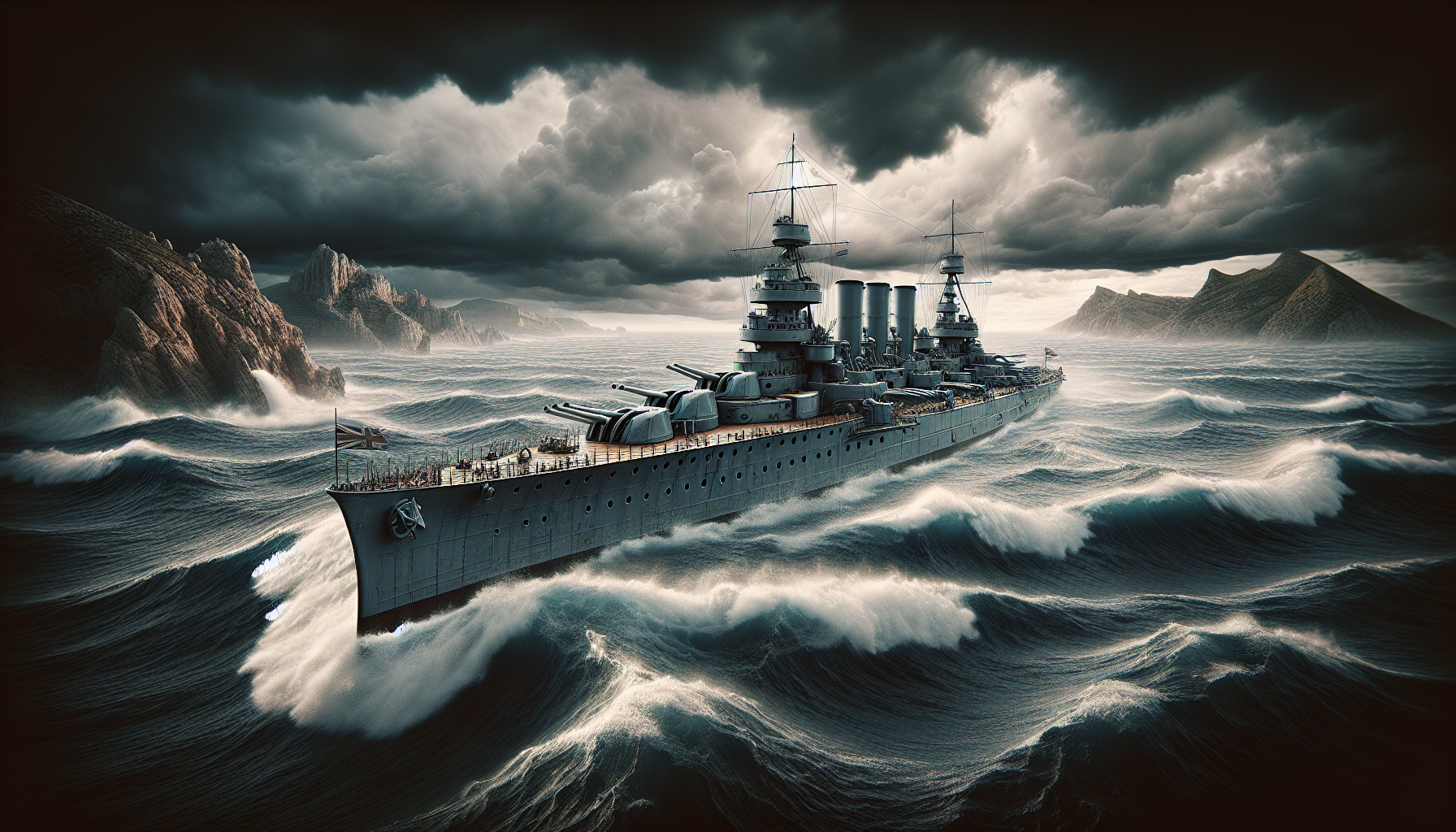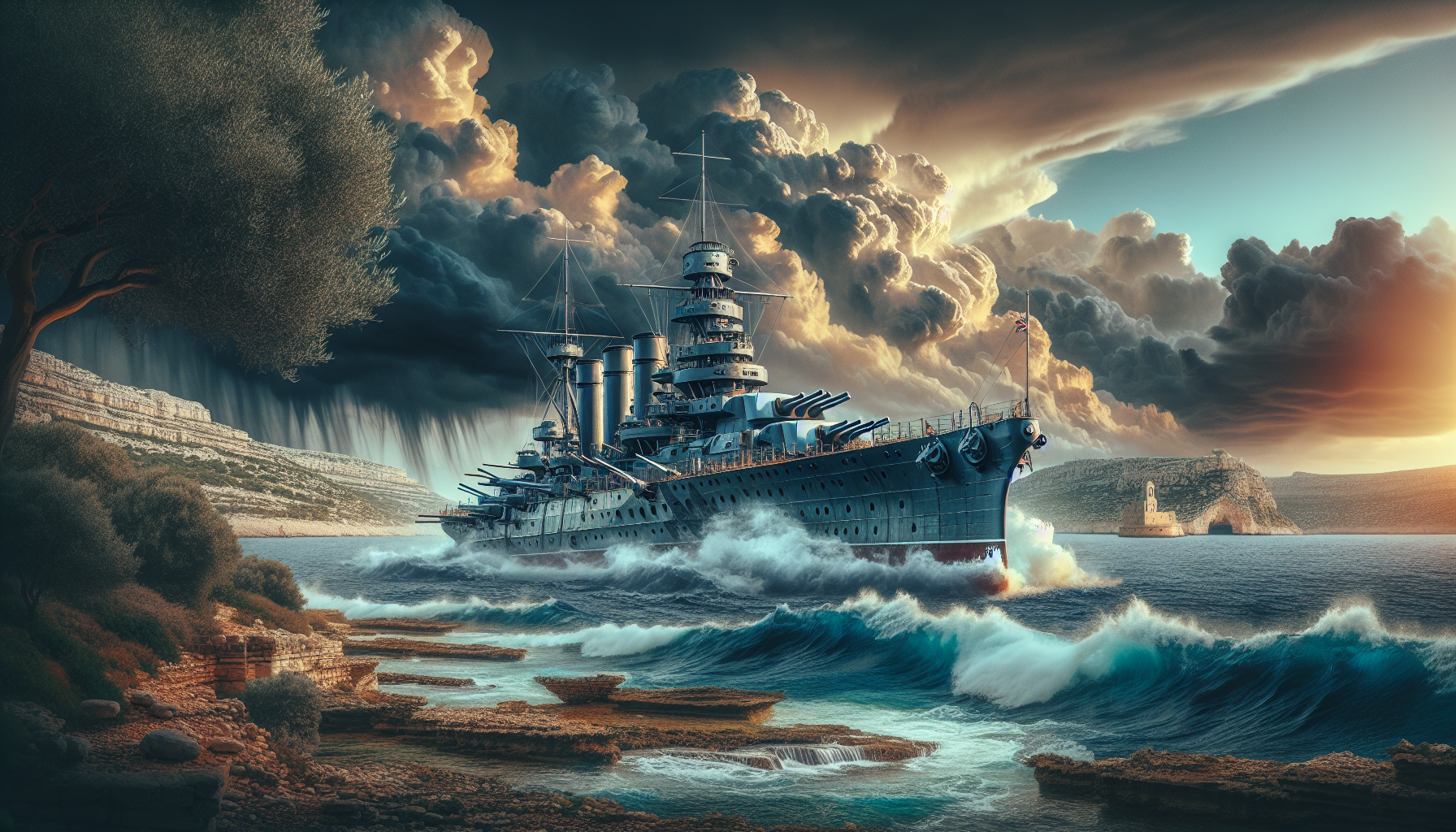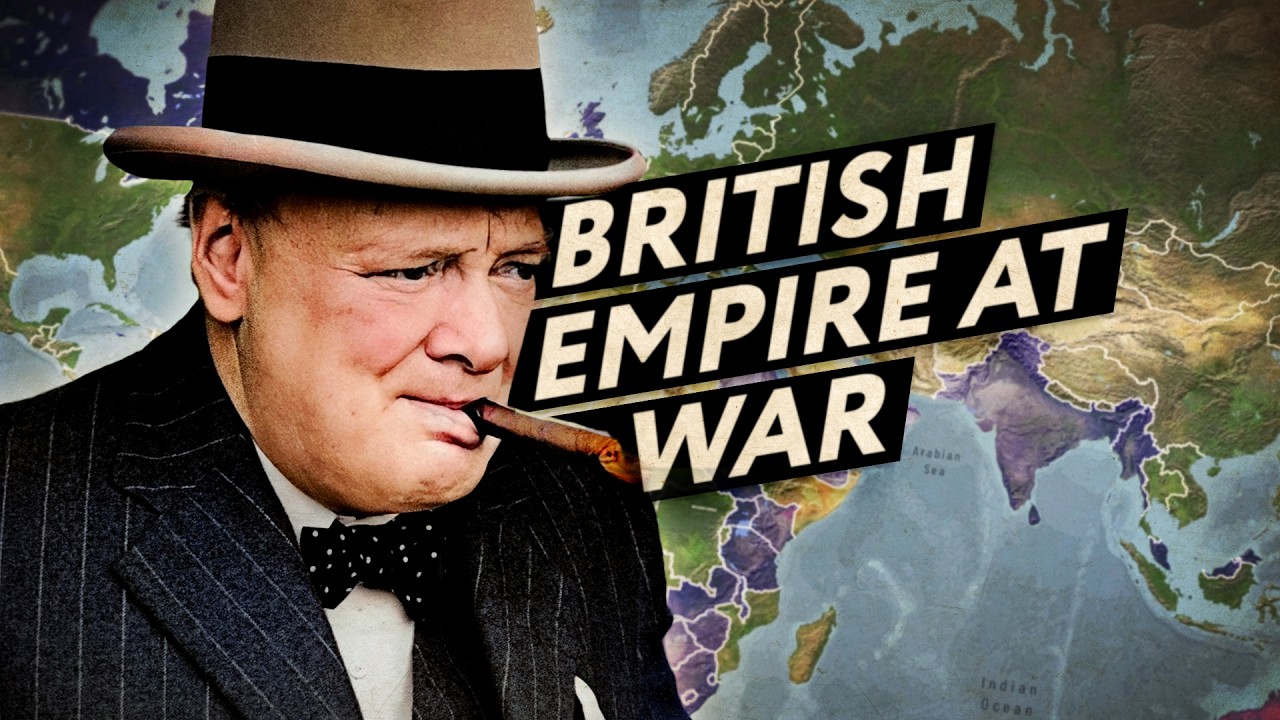In the summer of 1940, the British Empire confronted formidable challenges in the Mediterranean Sea as it faced advancements from German forces and newly belligerent Italian troops. This pivotal theater of conflict not only served as a strategic lifeline to British colonies but also emerged as a battleground where the Empire’s resolve and military capabilities were tested. The documentary “Britannia Rules the Mediterranean Sea: British Empire at War 1940” provides an insightful examination of the campaigns launched to repel Italian aggression and engage remnants of the French fleet.
The article navigates through critical military operations that characterized this era, highlighting the significance of overseas contributions from subjects of the Empire. Through a careful analysis of tactics and outcomes, you will gain a deeper understanding of how these actions shaped the broader context of World War II and influenced subsequent Allied strategies. This exploration underscores the intricacies of warfare conducted in a region marked by both geopolitical interests and the indomitable spirit of nations striving for survival.
Britannia Rules the Mediterranean Sea: The British Empire at War 1940
Historical Context
The British Empire in the 1940s
The 1940s marked a pivotal era for the British Empire, a time characterized by immense geopolitical strains and military pressures. With the onset of World War II, the Empire found itself fighting on multiple fronts, grappling with the threat posed by both Axis powers and emergent nationalist movements in its colonies. The German Wehrmacht swept through Europe, leaving devastation in its wake, while the British Isles remained under constant threat of aerial bombardment. As you delve into this period, it becomes evident that the very survival of the Empire hinged upon its colonial resources and the strategic control of vital maritime routes, particularly in the Mediterranean Sea.
Europe on the Brink of War
By the summer of 1940, Europe was a cauldron of conflict. Germany had conquered Poland and launched successful campaigns against Denmark, Norway, and the Low Countries, setting the stage for a direct assault on France. The relentless advance of the Nazis left Britain isolated, fostering a sense of urgency regarding its military strategy. You must consider how these events catalyzed British efforts to solidify alliances and bolster defenses, especially in the Mediterranean—a crucible of military operations vital for safeguarding colonial interests.
The Mediterranean’s Strategic Importance
The Mediterranean Sea functioned as a critical artery for the British Empire, connecting the British Isles with key territories in Africa, the Middle East, and Asia. Control over this sea was not merely a matter of naval dominance; it was essential for maintaining supply lines, troop movements, and access to oil resources. As you analyze Britain’s military strategies in the Mediterranean during this tumultuous period, recognize how the sea’s significance extended beyond warfare to encompass economic and colonial imperatives.
The Rise of Italian Aggression
Mussolini’s Expansionist Ambitions
Italy, under the fascist regime of Benito Mussolini, harbored ambitions for territorial expansion in Africa and the Mediterranean. Mussolini’s early military successes in Ethiopia emboldened his belief in a new Roman Empire, fueling his aggression against smaller nations and aligning Italy with Nazi Germany. You will find that such ambitions set the stage for Italy’s entry into the conflict on the side of the Axis powers, creating new challenges for Britain, which sought to maintain its dominance in the region.
Italian Naval Strength and Strategy
Though initially underestimated, the Italian Navy possessed significant strength, bolstered by its access to a network of naval bases in the Mediterranean. Mussolini aimed to leverage this power against British interests, setting forth strategies that included blockades and maritime offensives. As you examine the Italian naval strategy, it is crucial to consider how Italy’s ambitions to disrupt British control over the Mediterranean led to a series of confrontations that would shape the course of the war.
The Impact of the Italian War Declaration
Italy’s declaration of war against Britain on June 10, 1940, transformed the Mediterranean into a theater of comprehensive conflict. This decision prompted immediate military responses from Britain, starting a series of engagements that would reflect the strategic necessity of maintaining control over the Mediterranean routes. As you analyze this timeline, reflect on the implications of Italy’s actions and the subsequent British military and diplomatic maneuvers.

Key Battles in the Mediterranean
Battle of Taranto: A Night Attack
One of the first significant battles between British and Italian forces occurred at Taranto in November 1940. The British executed a daring aerial assault that resulted in extensive damage to the Italian fleet, showcasing the effectiveness of aircraft carriers in naval warfare. You should observe the tactical innovations employed during this battle and how they illuminated the evolving nature of military engagements in the Mediterranean.
The Battle of Matapan: A Tactical Triumph
The Battle of Matapan in March 1941 epitomized British naval superiority and operational planning. Your exploration of this battle will reveal the importance of intelligence and reconnaissance, as the British struck decisively against the Italian fleet. Matapan exemplified not just a victory in battle, but also a significant shift in morale and perception regarding naval capabilities, an essential aspect of the broader Mediterranean campaign.
Operation Compass: The British Offensive
In late 1940, Operation Compass emerged as a significant British campaign aimed at defeating Italian forces in North Africa. Coordinated offensives across Libya demonstrated the integration of land and naval power, leading to substantial territorial gains for British troops. As you analyze Operation Compass, pay attention to the strategic lessons learned and the subsequent impact on Italian operations in North Africa.
British Naval Power
Royal Navy’s Role in the Mediterranean
The Royal Navy was central to Britain’s Mediterranean strategy, tasked with safeguarding supply lines and asserting control over the waters. Your examination of the Royal Navy’s operational strategies will underscore its historical significance, from its formidable fleet to its role in pioneering modern naval warfare techniques.
Technology and Naval Strategy
As you investigate the technological advancements adopted by the British Navy during this period, consider how innovations in radar technology, aircraft carriers, and naval tactics reshaped maritime combat. The integration of these advancements not only provided the British forces with a strategic edge but also reflected the broader shifts in warfare that characterized World War II.
Key Ships and Admirals
The Mediterranean theater saw the rise of influential naval figures and iconic warships that played pivotal roles in shaping naval engagements. From Admiral Cunningham’s leadership during the Battle of Matapan to the aircraft carrier HMS Illustrious, an analysis of these key players and vessels illustrates the human and technological elements that contributed to British victories.

The Role of Allied Forces
Commonwealth Contributions
The contributions of Commonwealth nations proved crucial to British efforts in the Mediterranean. Troops from Australia, Canada, India, and New Zealand bolstered British forces, adding diversity and strength to the combined military. You should consider how these alliances influenced operational capabilities as the British Empire relied on the collective strength of its allies.
French Naval Actions
Despite being an enemy after France’s capitulation in June 1940, the remnants of the French navy represented a complex element in Mediterranean warfare. The British assessment of the threat posed by the French fleet necessitated a delicate balance between collaboration and confrontation. Your exploration of this dynamic will illustrate the intricate diplomatic maneuvers that defined military strategy during the war.
Collaboration with the U.S. and Other Allies
The British Empire increasingly sought collaboration with the United States, particularly as the war escalated. Although America remained neutral early in the war, British leaders recognized the strategic potential of fostering ties that would lead to mutual military support. As you delve into this aspect, focus on how these relationships evolved and the eventual impact on the Mediterranean operations.
Impact on Colonial Troops
Recruitment of Colonial Forces
Throughout World War II, Britain relied on a diverse array of colonial forces to bolster its military ranks. Troops from Africa, the Caribbean, and Asia became integral to the expeditionary campaigns across the Mediterranean. You will gain insight into how colonial recruitment not only filled manpower shortages but also represented a vast spectrum of cultural and political complexities within the British military structure.
The Experience of Indian Troops
Indian soldiers played a remarkable role in the British Indian Army, which was prominently involved in Mediterranean campaigns. Your investigation into the experiences of Indian troops will reveal the challenges they faced, including severe cultural dislocation and harsh war conditions, as well as their contributions to key battles in North Africa.
Challenges Faced by Non-European Soldiers
The inclusion of non-European soldiers introduced complex challenges related to race, identity, and loyalty. As you navigate this topic, reflect on how ideological notions of empire influenced perceptions of these soldiers, often subjecting them to prejudice even as they served valiantly in battle.

The Home Front Response
British Public Sentiment
The public’s response to the war effort was a critical factor influencing military strategy and morale. You will examine the collective psyche of British civilians during World War II, including their resilience amid the strains of wartime rationing, loss, and uncertainty. The war effort galvanized public opinion, shaping governmental policies and civic life.
Government Propaganda and Warfare
Propaganda played a pivotal role in molding public perception and sustaining morale. With campaigns encouraging participation in the war effort and bolstering support for colonial troops, the British government adeptly utilized media to galvanize the population. As you analyze these strategies, consider the psychological incursions of these efforts on the British spirit during the tumultuous years of the Second World War.
Rationing and Civilian Involvement
Rationing became a defining aspect of life on the home front, forcing adjustments and resourceful ways of living among civilians. You should explore how this new normal not only impacted daily life but also fostered a profound sense of unity among the populace, reinforcing the idea that everyone, regardless of class or background, was part of the larger war effort.
Challenges and Setbacks
Logistical Issues in the Mediterranean
The harsh operational environment presented significant logistical challenges for British forces. Inadequate supply lines, difficult terrain, and adversarial conditions strained military capacity as troops faced shortages and difficulties in mobilization. Analyzing these logistical issues reveals fundamental lessons about the operational challenges encountered by armies in the Mediterranean.
The Fall of France and Its Consequences
The fall of France in June 1940 had profound implications for Britain’s military strategy in the Mediterranean. This loss opened up a corridor for Axis powers to expand their influence and heighten the threat to British interests in North Africa and the Middle East. Your exploration here needs to underscore the strategic recalibrations necessitated by this seismic shift in the European balance of power.
Resilience Amidst Early Losses
Despite early setbacks in the Mediterranean, British forces exhibited remarkable resilience. Engaging in a continuous campaign of attrition, troops learned from their mistakes and adapted to changing circumstances. You will find that this resilience not only preserved Britain’s operational momentum but also fostered a renewed sense of determination among the military and civilian elements alike.
Executive Decisions and Leadership
Winston Churchill’s Military Strategy
Winston Churchill’s leadership during the Second World War was marked by decisive military strategy and unwavering resolve. As you examine his approach to the Mediterranean theater, consider how his vision and insistence on aggressive military campaigns shaped Britain’s response to escalating threats. Churchill’s ability to inspire confidence and command respect played a significant home-front role, boosting morale during dark times.
The Role of Military Commanders
Military commanders such as General Wavell and Admiral Cunningham emerged as pivotal figures in the Mediterranean campaigns. Your analysis of their strategies, leadership styles, and decision-making processes provides crucial insights into how military operations adapted in the face of adversity. These leaders’ innovative tactics and ability to leverage their forces significantly impacted British successes.
Political Ramifications of Military Actions
The surge of militarized conflict in the Mediterranean bore significant political consequences. You must analyze how military actions became deeply intertwined with political initiatives, influencing international relations and imperial governance. As battles were fought and strategies adapted, shifts in political power and public perception shaped the trajectory of the British Empire amid this global conflict.
Conclusion
Summarizing the British Efforts in the Mediterranean
In summary, Britain’s military efforts in the Mediterranean during 1940 represented a confluence of strategic resolve, collaborative alliances, and the indomitable spirit of colonial troops. The campaigns launched during this period not only sought to reclaim control over critical maritime routes but also to bolster the legitimacy and sustainability of the British Empire in a time of unprecedented crisis.
Impact on WWII Strategies
The approaches and experiences garnered in the Mediterranean significantly influenced broader military strategies throughout World War II. Lessons learned from naval engagement, troop logistics, and the integration of technology laid the groundwork for future campaigns, underscoring the importance of adaptability and resilience in a dynamic theatre of war.
Reflections on the British Empire’s Role
The British Empire’s role in the Mediterranean serves as a profound testament to the complexities of imperial power dynamics amid global warfare. As you reflect on this historical narrative, consider how the interwoven experiences of colonial troops, changing public sentiment, and military innovations reveal deeper truths about the foundation of modern warfare and the legacy of empires grappling with their fates.
